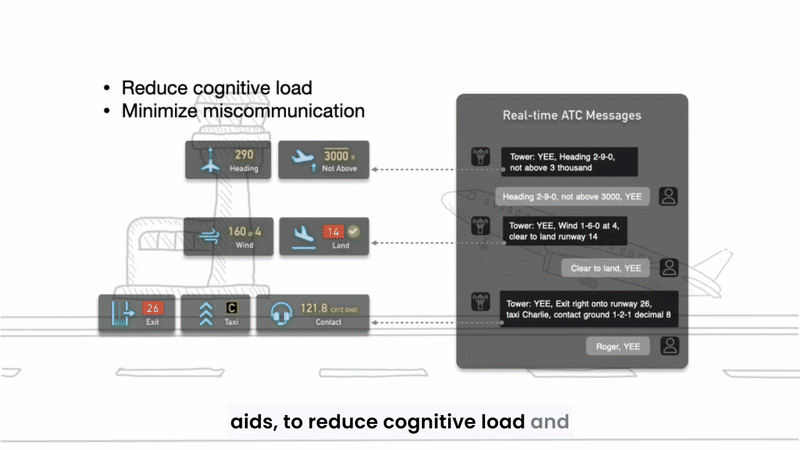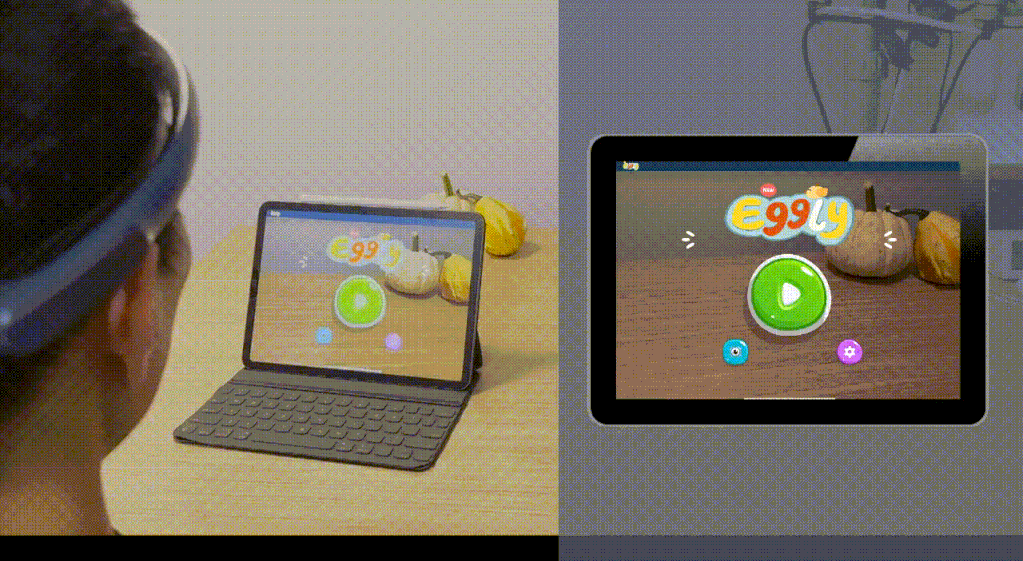
Human-Computer Interaction; Augmented Reality; Human-Centered Artificial Intelligence
Email: yue.lyu@uwaterloo.ca
LinkedIn: Yue Lyu
Twitter: @LyuTheresa
Hello! I’m Theresa, Yue Lyu, a Ph.D. researcher in Human-Computer Interaction at the WVisdom Lab, University of Waterloo in Canada. I design interactive systems that blend emerging technologies—such as augmented reality (AR), artificial intelligence (AI), and multimodal interaction—to support learning, expression, and communication for diverse users. My work explores how we can create more adaptive, emotionally resonant experiences, especially for groups with unique cognitive or situational needs, including autistic children and aviation professionals. Bridging physical and digital environments, I aim to make technology feel more intuitive, creative, and alive—turning interaction into a meaningful, empowering process.
Publications

ATCion: Exploring the Design of Icon-based Visual Aids for Enhancing In-cockpit Air Traffic Control Communication
Yue Lyu, Xizi Wang, Hanlu Ma, Yalong Yang, and Jian Zhao.
Effective communication between pilots and air traffic control (ATC) is essential for aviation safety, but verbal exchanges over radios are prone to miscommunication, especially under high workload conditions. While cockpit-embedded visual aids offer the potential to enhance ATC communication, little is known about how to design and integrate such aids. We present an exploratory, user-centered investigation into the design and integration of icon-based visual aids, named ATCion, to support in-cockpit ATC communication, through four phases involving 22 pilots and 1 ATC controller. This study contributes a validated set of design principles and visual icon components for ATC messages. In a comparative study of ATCion, text-based visual aids, and no visual aids, we found that our design improved readback accuracy and reduced memory workload, without negatively impacting flight operations; most participants preferred ATCion over text-based aids, citing their clarity, low cognitive cost, and fast interpretability. Further, we point to implications and opportunities for integrating icon-based aids into future multimodal ATC communication systems to improve both safety and efficiency.

EMooly: Supporting Autistic Children in Collaborative Social-Emotional Learning with Caregiver Participation through Interactive AI-infused and AR Activities
Yue Lyu, Di Liu, Pengcheng An, Xin Tong, Huan Zhang, Keiko Katsuragawa, and Jian Zhao.
Children with autism spectrum disorder (ASD) have social-emotional deficits that lead to difficulties in recognizing emotions as well as understanding and responding to social interactions. This study presents EMooly, a tablet game that actively involves caregivers and leverages augmented reality (AR) and generative AI (GenAI) to enhance social-emotional learning for autistic children. Through a year of collaborative effort with five domain experts, we developed EMooly that engages children through personalized social stories, interactive and fun activities, and enhanced caregiver participation, focusing on emotion understanding and facial expression recognition. Compared with a baseline, a controlled study with 24 autistic children and their caregivers showed EMooly significantly improved children’s emotion recognition skills and its novel features were preferred and appreciated. EMooly demonstrates the potential of AI and AR in enhancing social-emotional development for autistic children via prompt personalizing and engagement, and highlights the importance of caregiver involvement for optimal learning outcomes.


Eggly: Designing Mobile Augmented Reality Neurofeedback Training Games for Children with Autism Spectrum Disorde
Yue Lyu, Pengcheng An, Yage Xiao, Zibo Zhang, Huan Zhang, Keiko Katsuragawa, and Jian Zhao.
Autism Spectrum Disorder (ASD) is a neurodevelopmental disorder that affects how children communicate and relate to other people and the world around them. Emerging studies have shown that neurofeedback training (NFT) games are an effective and playful intervention to enhance social and attentional capabilities for autistic children. However, NFT is primarily available in a clinical setting that is hard to scale. Also, the intervention demands deliberately-designed gamified feedback with fun and enjoyment, where little knowledge has been acquired in the HCI community. Through a ten-month iterative design process with four domain experts, we developed Eggly, a mobile NFT game based on a consumer-grade EEG headband and a tablet. Eggly uses novel augmented reality (AR) techniques to offer engagement and personalization, enhancing their training experience. We conducted two field studies (a single-session study and a three-week multi-session study) with a total of five autistic children to assess Eggly in practice at a special education center. Both quantitative and qualitative results indicate the effectiveness of the approach as well as contribute to the design knowledge of creating mobile AR NFT games.
